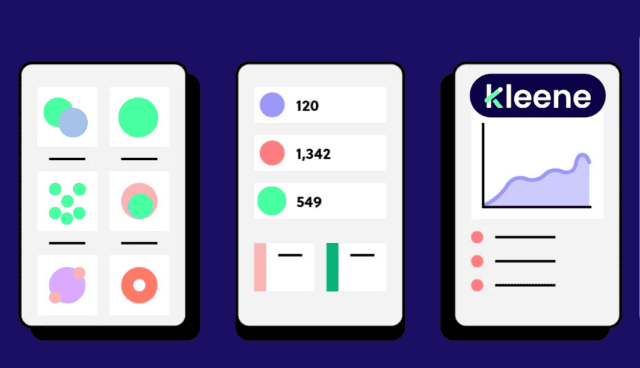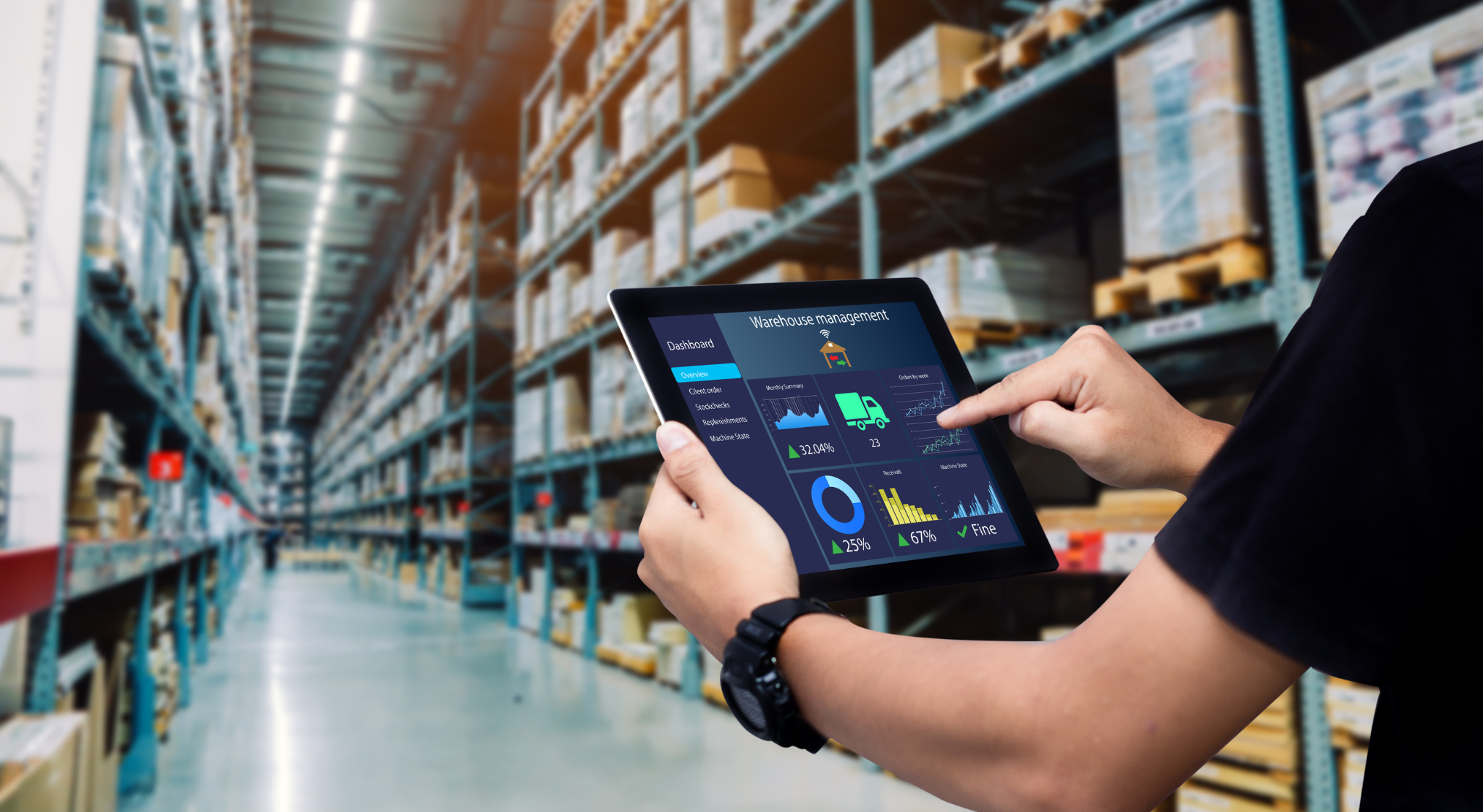Introduction
Choosing the right inventory management app is crucial for businesses striving to optimise their inventory processes. While ERP systems are commonly used, they often have limitations in functionality and reporting that can hinder effective inventory management. This article explores why a tailored inventory management app is often superior to ERP systems, black-box solutions, and standalone systems. We will also discuss how integrating data into a data warehouse ensures accurate forecasts and results, highlighting the efficiency and adaptability of a tailored app.
1. ERP Systems: Limited Functionality and Reporting
Understanding ERP Systems
Enterprise Resource Planning (ERP) systems are designed to integrate various business processes into a single platform. They aim to streamline operations, manage resources, and provide a comprehensive view of business activities. However, when it comes to inventory management, ERP systems often have limitations.
Limitations of ERP Systems in Inventory Management
Reporting Capabilities: ERP systems often provide standardised reports that may not be tailored to the specific needs of inventory management. These reports might lack the flexibility required to offer detailed insights into inventory turnover, lead times, or performance of individual stock-keeping units (SKUs).
Functional Gaps: While ERP systems cover a broad range of functions, their inventory management features may not be as advanced or specialised. This can include a lack of sophisticated forecasting tools, real-time tracking capabilities, or advanced analytics needed for optimal inventory management.
Complex Setup and Maintenance: Implementing and maintaining an ERP system can be complex and costly. Customising an ERP system to meet specific inventory management needs can be labour-intensive and time-consuming, often requiring ongoing updates and maintenance.
Why a Tailored Inventory Management App Excels
A tailored inventory management app focuses specifically on inventory processes, offering features and reporting capabilities that ERP systems may lack. Key benefits include:
Advanced Reporting Tools: Customisable reports that cater to specific inventory needs, providing insights on inventory levels, turnover rates, stock aging, and other critical metrics.
Enhanced Functionalities: Advanced features such as real-time inventory tracking, automated reorder notifications, and predictive analytics that help optimise inventory management.
Streamlined Setup and Integration: Easier and faster to implement than ERP systems, with seamless integration into existing systems, reducing the need for extensive customisation.

2. The Advantages of Integrating Data into a Data Warehouse
What is a Data Warehouse?
A data warehouse is a centralised repository that consolidates data from various sources. It provides a unified view of data, enabling comprehensive analysis and reporting.
Benefits of Data Warehouse Integration
Accurate Forecasting: Aggregating data from multiple sources allows for more precise forecasts. Improved data integration helps identify trends, patterns, and anomalies, leading to more accurate inventory predictions.
Comprehensive Reporting: Data warehouses support advanced reporting by providing access to a centralised dataset. Businesses can generate detailed and customisable reports that go beyond the capabilities of ERP systems.
Improved Data Quality: Data warehouses typically include data cleansing and validation processes, enhancing the accuracy and reliability of the data used for reporting and decision-making.

How a Tailored Inventory Management App Utilises Data Warehouses
Enhanced Data Integrity: Integration with a data warehouse ensures accurate and up-to-date information for inventory management, reducing errors associated with incomplete or outdated ERP data.
Advanced Analytics: Utilising advanced analytics tools for predictive forecasting, trend analysis, and real-time reporting to make data-driven decisions.
Customisable Dashboards: Tailored inventory management apps offer dashboards populated with real-time data, displaying key performance indicators (KPIs) and other critical metrics.

3. Black-Box Solutions: Why They Fall Short
Understanding Black-Box Solutions
Black-box solutions are designed to work on top of existing ERP systems, adding functionality without altering the underlying ERP infrastructure. However, these solutions often face several challenges.
Limitations of Black-Box Solutions
Integration Issues: Black-box solutions can struggle with seamless integration into other tech stacks, sales channels, and business processes. They may lead to data silos and inefficiencies, particularly if they do not sync well with other systems like e-commerce platforms or point-of-sale systems.
Lack of Customisation: Often rigid and limited in adaptability, black-box solutions may not cater to specific business needs, offering minimal customisation options.
Increased Complexity: Adding a black-box solution introduces additional complexity to the tech stack, requiring management and maintenance of yet another tool while ensuring it integrates with existing systems.
The Case for a Tailored Inventory Management App
Seamless Integration: Tailored apps integrate smoothly with existing systems and adapt to your business model, eliminating data silos and improving efficiency.
Flexibility and Customisation: Offers greater flexibility and customisation, allowing businesses to configure the solution to their unique inventory management needs.
Streamlined Operations: Simplifies operations by providing a unified solution that integrates with existing systems, reducing complexity and administrative overhead.
4. Standalone Solutions: Their Reporting Limitations
Issues with Standalone Inventory Solutions
Standalone inventory solutions often come with several reporting challenges:
Limited Reporting: Basic reporting features may not be sufficient for detailed inventory analysis, lacking the depth and customisation needed for a comprehensive understanding of inventory performance.
Dependence on Spreadsheets: Many standalone solutions rely on additional spreadsheets to fill reporting gaps, leading to inefficiencies and increased risk of errors due to manual data entry and reconciliation.
Data Fragmentation: Operating in isolation from other systems, standalone solutions can result in fragmented data, making it challenging to obtain a complete view of inventory performance.
Advantages of a Tailored Inventory Management App
Custom Reports: Provides customisable reporting options that generate detailed and specific reports without the need for additional spreadsheets.
Integrated Data: Offers a unified view of inventory data by integrating with other business systems, eliminating data fragmentation.
Enhanced Analysis: Access to advanced analytics tools for trend analysis, predictive forecasting, and real-time reporting, enabling more informed decision-making.
5. The Cost-Effectiveness of a Tailored Inventory Management App
Initial Investment vs. Long-Term Savings
Although a tailored inventory management app may involve a higher initial investment, it can be more cost-effective in the long term due to:
Reduced Operational Costs: Streamlines inventory processes, reducing manual interventions and optimising inventory levels, which lowers associated costs.
Increased Efficiency: Enhances efficiency through better integration and customisation, reducing administrative overhead and improving overall inventory control.
Comparing Costs
Lower Total Cost of Ownership: Compared to managing ERP setups or standalone systems with extra spreadsheets, a tailored app often offers a lower total cost of ownership.
Higher Return on Investment: The benefits of a tailored app, such as accurate forecasting, enhanced reporting, and streamlined operations, contribute to a higher return on investment.
6. Improved Inventory Control with Tailored Solutions
Precision in Inventory Management
A tailored inventory management app enhances precision in inventory control by offering:
Real-Time Data: Provides up-to-date information on inventory levels, helping businesses make timely decisions and avoid stockouts or overstocking.
Automated Processes: Automates routine tasks such as stock reordering and inventory tracking, reducing the risk of human error and increasing operational efficiency.
Better Decision-Making
Actionable Insights: Delivers actionable insights through advanced analytics and customisable reports, enabling businesses to make informed decisions based on real-time data.
Predictive Analytics: Utilises predictive analytics to forecast demand, optimise inventory levels, and improve supply chain management.
7. Enhanced User Experience and Support
User-Friendly Interface
A tailored inventory management app often features a user-friendly interface that is easy to navigate, reducing the learning curve and improving overall user experience.
Dedicated Support
Customised Training: Provides tailored training and support to ensure users can effectively utilise the app’s features and functionalities.
Ongoing Assistance: Offers dedicated support teams that can address specific issues and provide solutions based on the unique needs of the business.
Conclusion
In conclusion, a tailored inventory management app offers numerous advantages over traditional ERP systems, black-box solutions, and standalone systems. By integrating with a data warehouse, a tailored app ensures accurate forecasts and comprehensive reporting. It also addresses the limitations of black-box solutions and provides custom reports specific to your business needs. Investing in a tailored inventory management app enhances your inventory management processes, improves data accuracy, and ultimately leads to better business outcomes.
Using Kleene for Retail Inventory Management
Kleene is a leading AI-powered inventory management solution trusted by data-driven companies worldwide. With its advanced demand forecasting capabilities and comprehensive data analysis tools, Kleene gives retailers everything they need to confidently optimise inventory levels, reduce costs and improve operational efficiency. It’s a must-have platform for retail inventory management.
With Kleene’s predictive analytics and actionable insights, retailers can find new opportunities for growth around every corner. AI-powered retail inventory management offers immense potential for retailers to find ways to optimise their supply chain operations and drive enhanced customer satisfaction. In adopting a few best practices and leveraging a platform like Kleene, retailers can stay ahead of the curve.
Download our free e-book on how CFOs can master working capital in retail.
You may also like:
7 Powerful Tips for Small Business Inventory Management to Maximise Efficiency
Unlocking Success: The 10 Most Powerful Inventory Formulas
7 Key Reasons Why a Tailored Inventory Management App Outperforms ERP Systems
7 Powerful Insights on What is Inventory in Accounting
Achieving Optimal Stock Levels: 5 Effective Strategies
Frequently Asked Questions
What is an inventory management app?
An inventory management app is software designed to help businesses track, manage, and optimise their inventory. It typically includes features for reporting, forecasting, and integration with other systems.
How does an inventory management app differ from an ERP system?
An inventory management app focuses specifically on inventory-related processes, providing advanced features and customisation options that ERP systems may lack. ERP systems handle a broad range of business functions but may not offer the specialised tools needed for effective inventory management.
Why should I integrate data into a data warehouse?
Integrating data into a data warehouse ensures that your inventory data is accurate and comprehensive. This integration allows for better forecasting and detailed reporting, avoiding the pitfalls of relying solely on ERP data.
What are the benefits of a tailored inventory management app?
A tailored inventory management app offers custom reports, better integration with existing systems, and flexibility to adapt to your specific business needs. It provides a more effective solution than generic ERP systems or standalone solutions.
Are black-box solutions effective for inventory management?
Black-box solutions can be inflexible and may not integrate well with other systems. They often lack the customisation and adaptability needed for effective inventory management, making a tailored app a more suitable choice.
By focusing on these key aspects, you can ensure that your inventory management app provides the most value and efficiency for your business.



